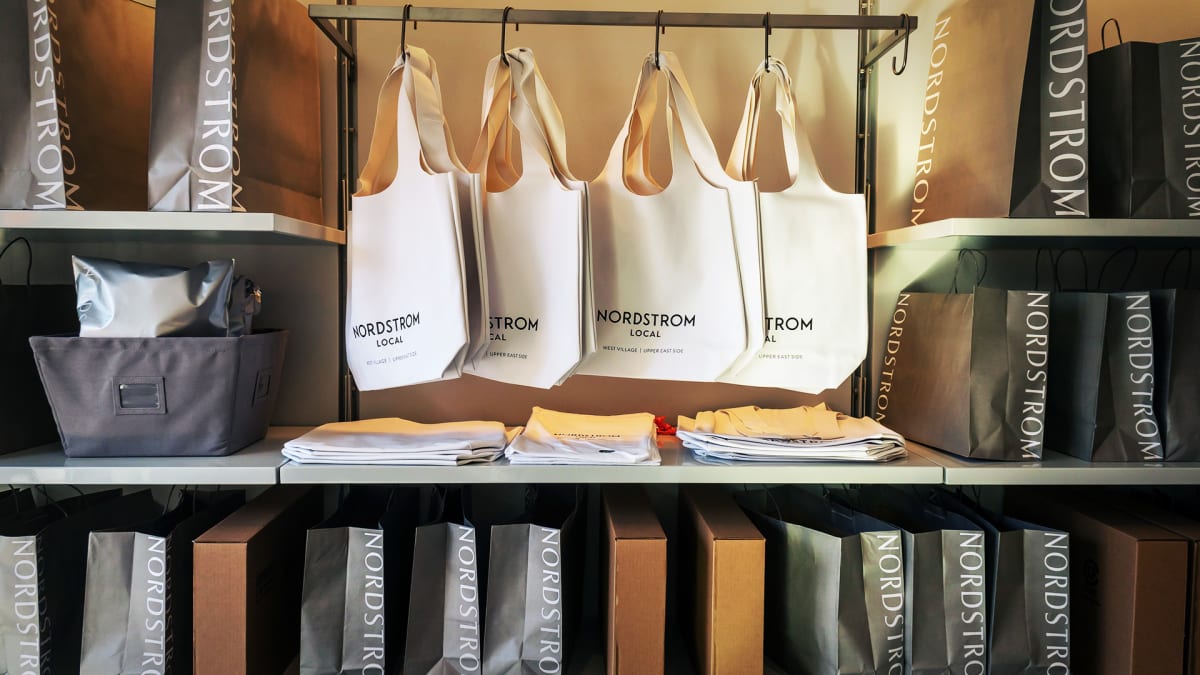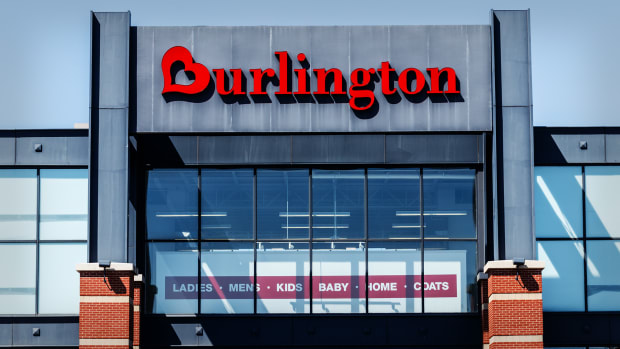
Consumers love a deal, especially for brand name merchandise. There’s probably no better feeling than bragging to anyone within earshot about buying a designer blouse for 50% off the listed price.
In fact, that love of the deal is why off-price retailers, including The TJX Companies (TJX), Ross Stores Inc. (ROST), Burlington Stores Inc. (BURL), and Nordstrom Rack, are booming right now. Their whole business model rests on buying excess inventory from other retailers and manufacturers on the cheap and then reselling to consumers at discounted prices. Even in an era of inflation, consumers will still open their wallets to buy something special for a good price.
But here’s the problem: that designer blouse might be fake. In fact, there’s more than a decent chance that those deals you see in even legitimate stores seem too good to be true because they are too good to be true.
Counterfeit goods a big problem
We mostly associate counterfeit goods with Chinatown street vendors, sketchy flea markets, and, of course, the Internet. Amazon Inc. (AMZN), ebay, and Alibaba have long struggled to rid their operations of fake stuff.
Yet even reputable brick and mortar retailers are susceptible to the same market forces, business models, and lax operations that make counterfeit goods such a lucrative enterprise.

Shutterstock
Whether brick and mortar or e-commerce businesses, “counterfeits are a huge business,” said Jane Singer, managing director of JDT Research in Hong Kong, who closely monitors apparel supply chains. “I've been told by some folks I knew at Kroll, the private investigations firm, the value is greater than the drug trade.”
“Why? Because there's little downside risk - other than having your goods confiscated,” she said. “There’s no jail time. It’s pretty easy to move the goods around undetected. And it’s easy to acquire the goods.”
“At the physical retail level it comes down to some off price retailers who pick up overstock merchandise without checking to see where it's coming from,” Singer said.
Patagonia targets Nordstrom Rack
Last week, apparel maker Patagonia sued Nordstrom Rack, accusing the off-price arm of Nordstrom Inc. (JWN), in federal court of selling knock off Patagonia-branded t-shirts and sweatshirts.
“Patagonia is informed and believes that Defendant has marketed and sold substantial quantities of products bearing the Counterfeit Designs through Nordstrom Rack stores across the country and has profited (and continues to derive commercial benefit) from such sales,” according to documents Patagonia filed with the U.S. District Court in Los Angeles.
A Nordstrom spokesperson said the company is aware of the lawsuit.
“We take these allegations seriously,” the retailer said. “We are currently reviewing the matter.”
Patagonia used to work closely with Nordstrom. The two companies jointly developed a store-within-a-store concept called Concept 004, which marketed Patagonia’s WornWear-branded repaired or recycled apparel and other Patagonia products to Nordstrom shoppers in Los Angeles, New York, Seattle, and Vancouver.
In the court papers, Patagonia said it recently decided not to renew its partnership with Nordstrom. But this year, the company started to detect counterfeit merchandise at Nordstrom Racks across the country.
Adding insult to injury was the kind of clothing the retailer was allegedly selling. Patagonia enjoys a well known reputation as an apparel maker deeply invested in the environment and paying fair wages to the people who make the clothing.
However, Nordstrom Rack was allegedly selling Patagonia-branded products that claim to be made from organic cotton but whose care tags said the items were made from “100% recycled polyester.”
The clothing also contained tags with a Fair Trade Certified logo, which states: “This product is made in a Fair Trade Certified sewing facility, which means we pay a premium to workers so they can elevate their standard of living.” But Patagonia says that claim is also false.
Policing their supply chains
The lawsuit is significant for two reasons. One, we’re not talking about shady, anonymous outfits on the Internet. This is Nordstrom, one of the country’s most prestigious luxury department store chains. If Nordstrom can’t adequately monitor its supply chain, then what does that suggest about other retailers like Macy's Inc. (M) and Target Corporation (TGT)?
Secondly, off-price retailers like TJ Maxx, Ross, Marshalls, and Burlington have been some of the few bright spots in the retail industry this year, enjoying solid growth in both stock prices and comparable store sales.
One reason for their success is that major retailers like Macy’s, Target, and The Gap Inc. (GPS) had too much inventory last year and needed to clear their merchandise fast. A lot of that apparel goes to off-price retailers.
Nordstrom Rack, which boasts 240 stores across the country, has actually been performing better than the regular department store chain. And now Macy’s is thinking of expanding its off-price locations: the company only operates 20 Bloomingdale's The Outlet stores.
Stopping counterfeit goods is near impossible. The international supply chain for apparel, much of it located in China and Asia, is leaky and vulnerable to theft and fraud. What’s not known is how much effort major retailers invest in policing the authenticity of the goods they sell.
They certainly know the risk of selling knock offs to the public.
“Concerns or issues with the quality, safety and sourcing of merchandise, or the authenticity of merchandise, regardless of whether unverified or not our fault, could result in regulatory, civil or criminal fines or penalties, litigation or reputational harm, any of which could have an adverse effect on our financial results,” according to TJ Maxx’s annual report.
But knowing the risk is not the same thing as doing something about it.







